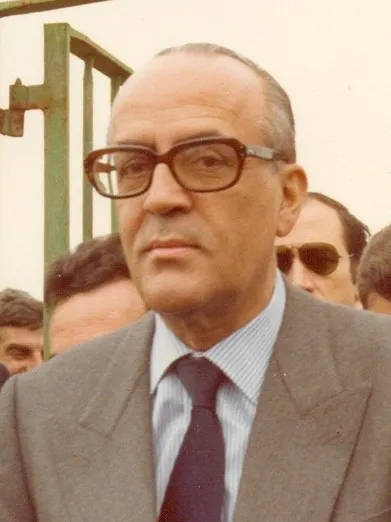
Full Name: Leopoldo Calvo-Sotelo
Nationality: Spanish
Profession: Engineer and Politician
Position: Prime Minister of Spain
Term as Prime Minister: 1976 to 1981
Birth Year: 1926
Death Year: 2008
2008 – Leopoldo Calvo-Sotelo, Spanish engineer and politician, Prime Minister of Spain (b. 1926)
The Legacy of Leopoldo Calvo-Sotelo: A Turning Point in Spanish Politics
As the sun began to set on March 3, 2008, Spain bid farewell to a man whose life mirrored the turbulent yet transformative journey of his nation. Leopoldo Calvo-Sotelo was not merely a political figure; he was an architect of modern Spain, stepping onto the national stage during a time when the country teetered between authoritarianism and democracy. Born in 1926, his early life unfolded against the backdrop of Spain’s civil unrest a period characterized by stark contrasts and fierce political rivalries.
Calvo-Sotelo's formative years were spent under Franco’s regime a dictatorship that stifled freedom and innovation. However, instead of succumbing to despair or fleeing into exile like many contemporaries, he immersed himself in engineering and politics. He earned a degree in industrial engineering from the prestigious Technical University of Madrid. Ironically, while studying within oppressive walls, his ideas were anything but constrained; they laid the groundwork for future reform.
His entry into politics came almost serendipitously he joined the Spanish Union of Modernization (UEM) in 1969 at a time when few dared to advocate for change publicly. Yet it was his role as Minister for Transport during Adolfo Suárez's government that catapulted him into prominence. Who knows how history would have been written if not for that pivotal moment? His tenure saw critical infrastructure improvements across Spain roads expanded and rail systems modernized perhaps foreshadowing his future endeavors as Prime Minister.
In February 1981, amidst one of Spain's most profound crises the attempted coup d'état known as '23-F' Calvo-Sotelo found himself at a crossroads. As tensions mounted within parliament, he exhibited an uncanny ability to navigate through chaos with composure and resolve; however, this unprecedented crisis underscored both his vulnerability and strength as a leader. Following Suárez’s resignation after this tumultuous episode and despite many doubting his capacity to unite an increasingly fragmented political landscape Calvo-Sotelo ascended to power as Prime Minister.
Prime Ministership: Navigating Uncertainty
Assuming office in April 1982 marked not just another chapter in Calvo-Sotelo’s life but also an era defined by significant change for Spain. His administration faced myriad challenges from economic turbulence fueled by high inflation rates to rising unemployment that left many citizens disillusioned with politics altogether.
Yet even amidst these storms arose opportunities; Calvo-Sotelo recognized that forging international alliances would be crucial for stabilizing Spain economically and politically on the global stage. Thus began efforts towards integrating with European institutions which arguably became hallmarks of his tenure as well as fostering relations with NATO.
However! The road was fraught with obstacles; domestic resistance grew louder against reforms aimed at bringing progress through austerity measures designed primarily out of necessity rather than popularity… Ultimately leading up until elections held later that year saw him handing over power a poignant reminder that transformative leadership often requires sacrifices few are willing or able to endure long enough through public scrutiny!
A Lasting Influence: Transitioning from Power
The aftermath felt like both victory and defeat as socialist policies soon took hold under Felipe González’ leadership while simultaneously marking an end to what could’ve been greater achievements had circumstances allowed different outcomes! Ironically though even after leaving office amid declining public approval ratings due largely because misjudged perceptions around austerity measures implemented earlier still continue shaping conversations today surrounding fiscal responsibility versus social welfare concerns!
A Reflection Through Time
Acknowledging Leopoldo Calvo-Sotelo's legacy extends beyond traditional views associated strictly with political accomplishments but rather encompasses broader societal shifts ignited during times where conflicts raged both internally amongst parties vying control yet equally externally facing growing demands placed upon them by citizens yearning true representation! Perhaps therein lies one key lesson worth contemplating even now decades later to stay true ideals navigating treacherous waters often leads us towards unforeseen destinies...



